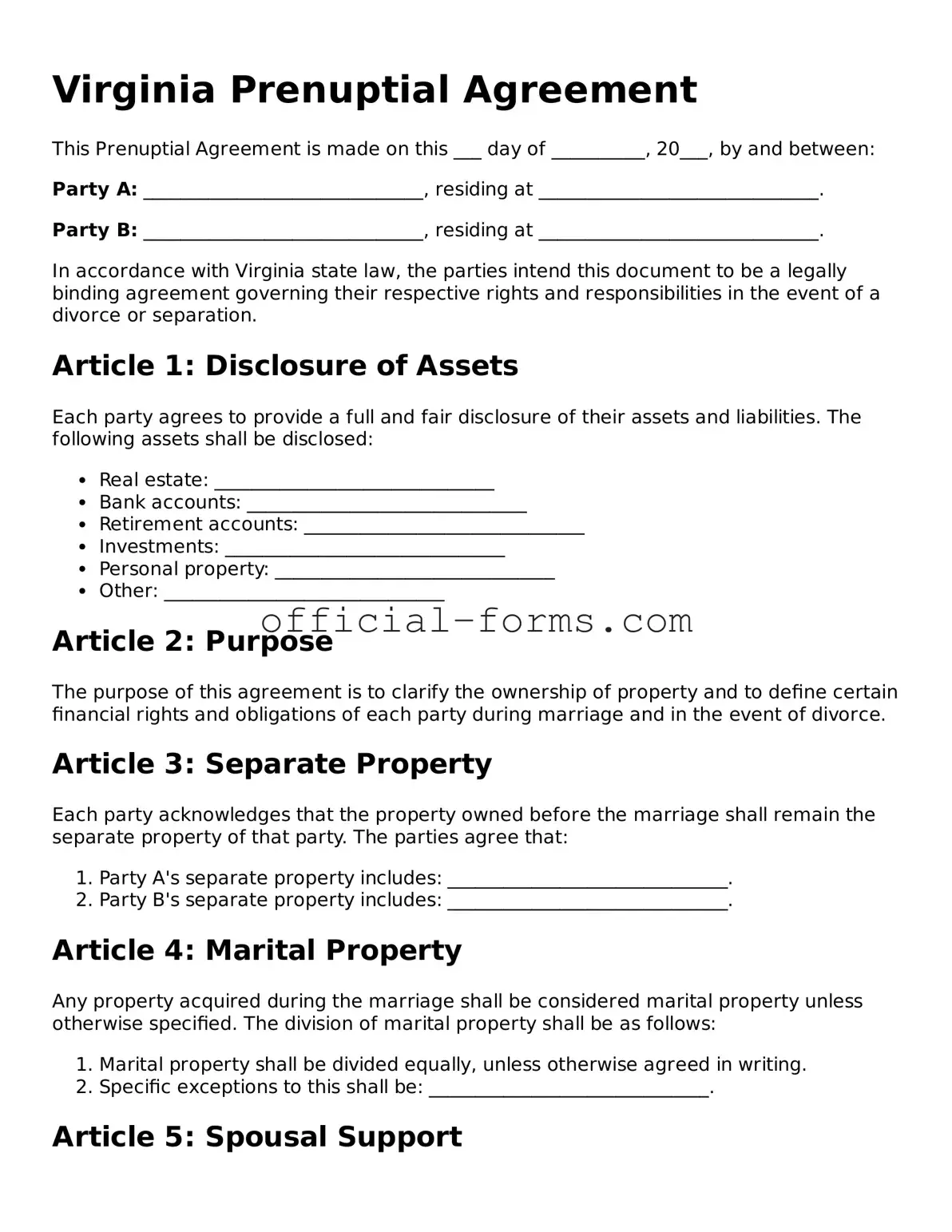Official Virginia Prenuptial Agreement Document
A Virginia Prenuptial Agreement form is a legal document that outlines the terms and conditions regarding the division of assets and responsibilities in the event of a divorce. This agreement can provide clarity and protection for both parties before entering into marriage. Understanding its importance is crucial for anyone considering marriage in Virginia.
Open My Prenuptial Agreement Now

Official Virginia Prenuptial Agreement Document
Open My Prenuptial Agreement Now
Don’t leave your form incomplete
Finish Prenuptial Agreement online quickly from start to download.
Open My Prenuptial Agreement Now
or
➤ PDF
